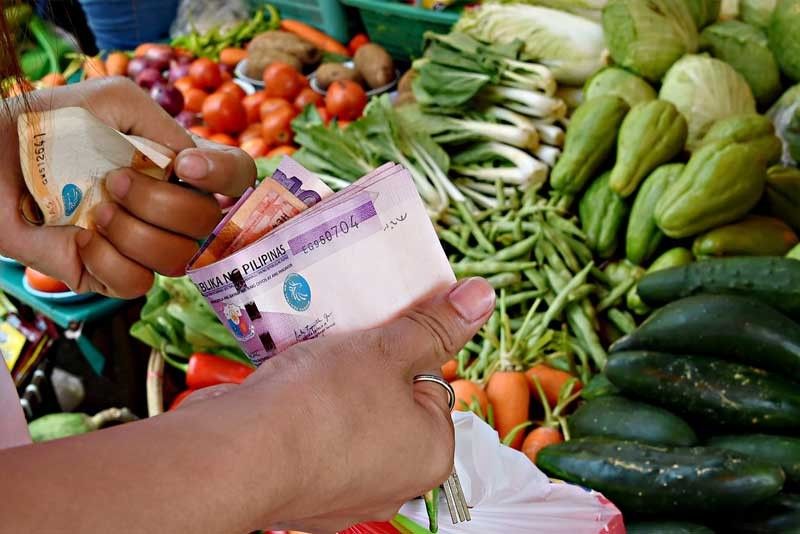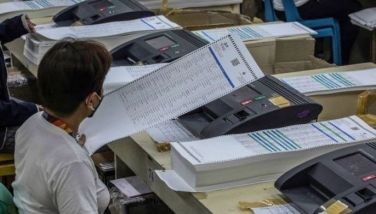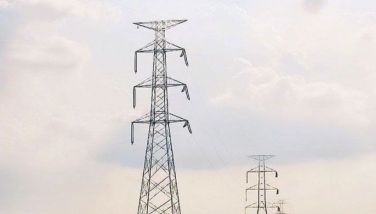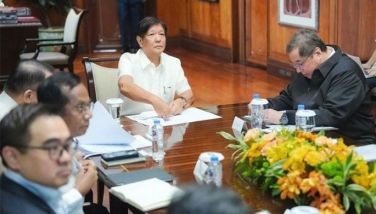Palace: Steps being taken vs rising prices

MANILA, Philippines — Malacañang has issued fresh assurance of relief in the wake of new record high inflation in September, saying President Duterte’s directives like relaxing procedures for agriculture importation and cracking down on profiteers would cushion the impact of soaring prices.
“We know that the people are feeling the effects of higher prices, that’s why the government has taken steps to address this,” presidential spokesman Harry Roque Jr. said in Filipino yesterday.
Based on data released by the Philippine Statistics Authority (PSA), inflation reached a new nine-year high of 6.7 percent in September from 6.4 percent in August and three percent in September 2017.
President Duterte issued Administrative Order No. 13 in September seeking the removal of non-tariff barriers to importation of agricultural products, including rice.
Through Memorandum Order No. 26 issued also last month, the Chief Executive directed the Department of Agriculture and the Department of Trade and Industry to adopt measures to reduce the gap between farmgate prices and retail prices of agricultural products.
“This will lower the price of basic food products for Filipino consumers since certain administrative requirements unduly add to the cost of importation and limit food supply,” Roque said, referring to AO13.
Steep increase in food prices due to supply disruptions in the aftermath of Typhoon Ompong stoked inflation in September, PSA said.
But there are indications of easing prices, the country’s economic managers claimed in a joint statement.
Roque said the President’s memorandum was intended to maintain sufficient supply of agricultural products in the domestic market and “provide effective and sufficient protection to consumers against hoarding, profiteering and cartels with respect to the supply, distribution, marketing and pricing of said goods.”
Congressmen called yesterday for the implementation of robust measures to arrest rising inflation, which was highest in the Bicol region.
Reps. Joey Salceda of Albay and Michael Romero of party-list group 1-Pacman, who are both economists, warned the Duterte administration that unless vigorous steps were taken, consumer prices could further go up in the months ahead.
“6.7 percent was bad as expected and remained driven by 9.7-percent food inflation. This was caused by a combo punch of Ompong and self-inflicted jabs,” Salceda said. “Barring any deterioration in external factors and delays in implementing reforms, we see this to be the peak of this inflation cycle.”
He said the government should aim to “stop inflation momentum, arrest inflationary expectations, preempt market opportunism and provide immediate relief to consumers through lower prices and higher supply of commodities.”
Romero predicted that inflation could shoot past seven percent “with the recent approval of water rate hikes, continuing peso depreciation, increased consumer spending during the Christmas season and crude oil prices rising above $80 per barrel.”
Christmas spending
He said Filipinos would spend in the coming months “no matter what because of the 13th-month pay, bonuses and other cash gifts given to employees in the last quarter.”
“It is now time for brute force intervention in the consumer markets for basic commodities. The economic managers must immediately step on the brakes by flooding the consumer market with more than enough supplies of basic commodities,” he said.
He added that a combination of more money and fewer goods would certainly mean more inflationary pressures.
Romero also urged the Department of Trade and Industry (DTI) and National Food Authority (NFA) “to get their act together by removing all needless regulations on rice retail permits” and to facilitate the sale of cheap rice.
Salceda said higher inflation has likely added 2.4 million Filipinos to the ranks of the poor.
He reiterated the proposals of Speaker Gloria Macapagal-Arroyo and her economic team for the administration to remove tariffs on corn, feed wheat, vegetables, and meat, and to import more rice to bring in needed supplies.
He said President Duterte could sign an executive order scrapping tariffs on these items between Oct. 13 and Nov. 11, when Congress will be on its Halloween recess.
He said the Energy Regulatory Commission, Department of Energy, Toll Regulatory Board and Water Regulatory Office should “defer implementation or approval of regulated price adjustments,” while the Bangko Sentral ng Pilipinas (BSP) “must remain vigilant to control inflationary expectations, as well as peso speculation.”
The water agency has just approved a hefty rate increase. In August, before Congress went on a 12-day recess, Arroyo and other House leaders recommended these measures, but administration officials largely ignored them. Only the BSP responded positively.
Salceda also urged the Department of Social Welfare and Development (DSWD) to provide cash-for-work for small fishermen, 80,000 of them in the Bicol region.
He said the DSWD should also speed up the release of cash assistance to the poor and senior citizens.
He urged other departments, including labor and employment, environment and natural resources, and transportation and the NFA to as well to expedite the implementation of similar programs.
On Aug. 10, Salceda warned President Duterte’s economic managers that unless vigorous measures were taken, inflation could hit beyond six percent.
He aired the warning on “The Chiefs” show in Cignal TV’s One News after the PSA reported that inflation in July jumped to 5.7 percent from 5.2 percent in June. Prices further rose by 6.4 percent in August and 6.7 percent last month. – Jess Diaz
- Latest
- Trending





























